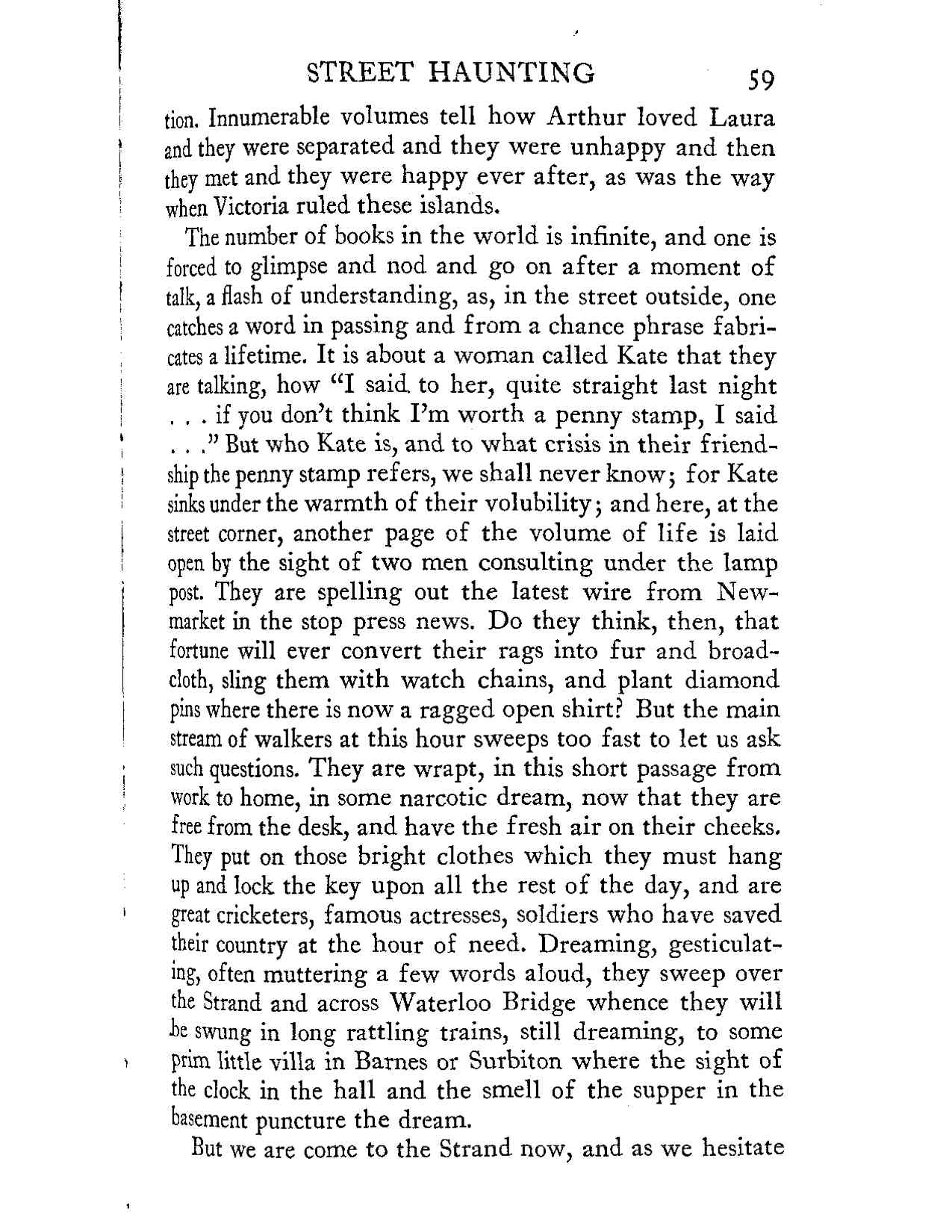
tion. Innumerable volumes tell how Arthur loved Laura
and they were separated and they were unhappy and then
they met and they were happy ever after, as was the way
when Victoria ruled these islands.
The number of books in the world is infinite, and one is
forced to glimpse and nod and move on after a moment of
talk, a flash of understanding, as, in the street outside, one
catches a word in passing and from a chance phrase fabri-
cates a lifetime. It is about a woman called Kate that they
are talking, how ‘I said to her quite straight last night
. . . if you don't think I'm worth a penny stamp, I said
. . .' But who Kate is, and to what crisis in their friend-
ship that penny stamp refers, we shall never know; for Kate
sinks under the warmth of their volubility; and here, at the
street corner, another page of the volume of life is laid
open by the sight of two men consulting under the lamp-
post. They are spelling out the latest wire from New-
market in the stop press news. Do they think, then, that
fortune will ever convert their rags into fur and broad-
cloth, sling them with watch-chains, and plant diamond
pins where there is now a ragged open shirt? But the main
stream of walkers at this hour sweeps too fast to let us ask
such questions. They are wrapt, in this short passage from
work to home, in some narcotic dream, now that they are
free from the desk and have the fresh air on their cheeks.
They put on those bright clothes which they must hang
up and lock the key upon all the rest of the day, and are
great cricketers, famous actresses, soldiers who have saved
their country at the hour of need. Dreaming, gesticulat-
ing, often muttering a few words aloud, they sweep over
the Strand and across Waterloo Bridge whence they will
be swung in long rattling trains, still dreaming, to some
prim little villa in Barnes or Surbiton where the sight of
the clock in the hall and the smell of the supper in the
basement puncture the dream.
But we are come to the Strand now, and as we hesitate






